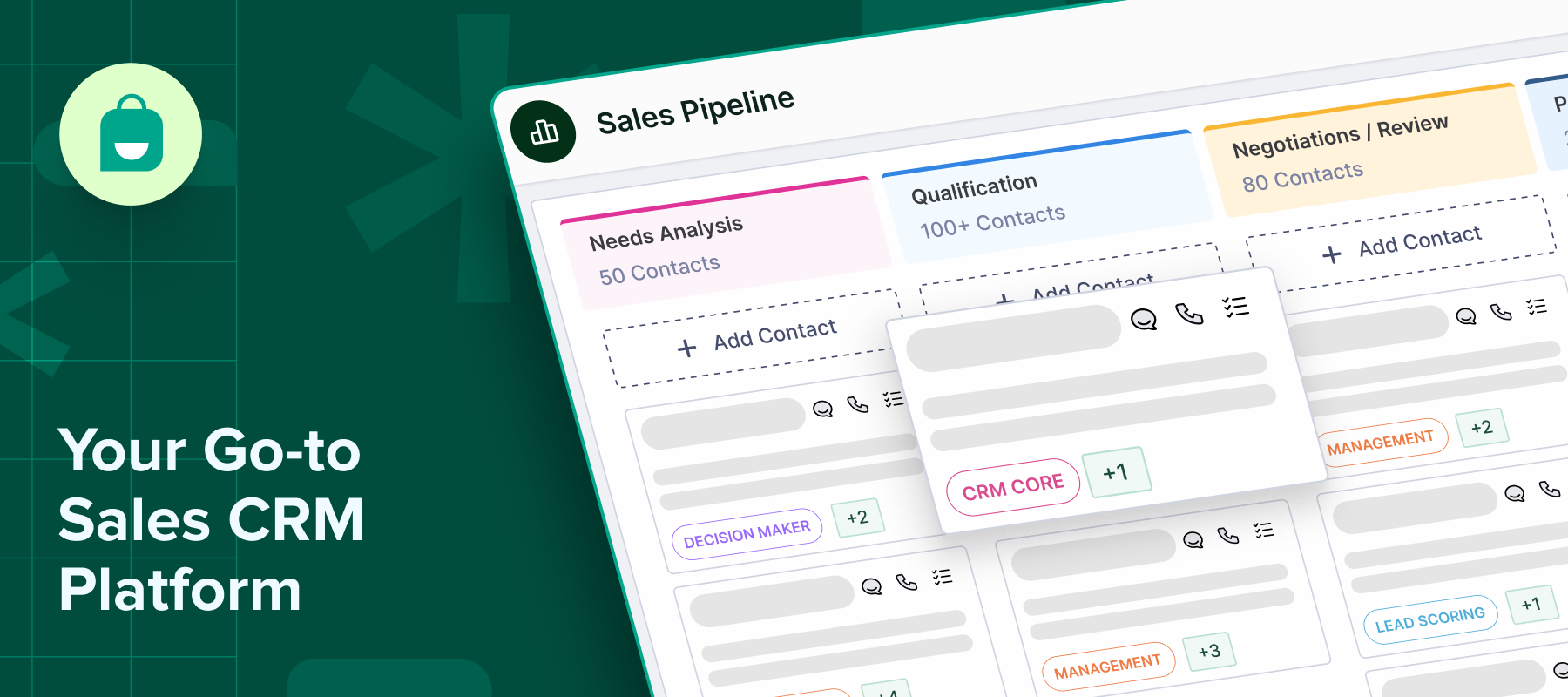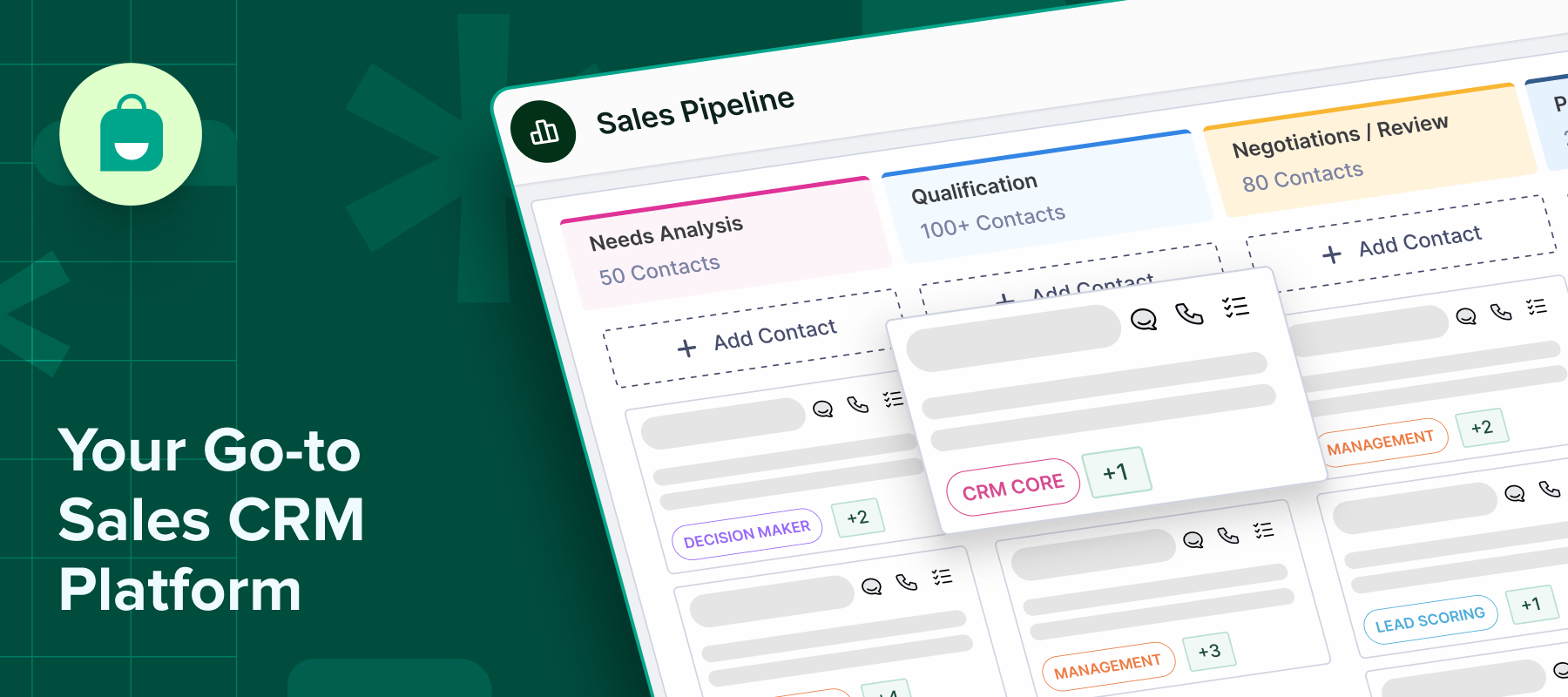Choosing the right CRM is one of the most important decisions for a business looking to streamline operations, improve customer relationships, and drive growth. But there are countless CRM options available in the market, each claiming to be the best.
This is where user reviews can be exceptionally helpful. Real user feedback can offer valuable insights into how the Sales CRM actually performs, helping you see through marketing promises and evaluate CRMs from real-world experiences.
Common features praised by users
Here are some of the most common features that users look for in a CRM like Interakt:
Ease of use and intuitive UI
CRM platforms that offer seamless onboarding, paired with easy usability and an intuitive user interface, are consistently praised by businesses and teams. These factors and features combined, help teams of any and all sizes to adopt the platform with minimal training.
Customization options
Customizability is appreciated by almost all businesses that are looking for CRMs. The availability of flexible workflows, custom fields, automation rules, etc., is often sought after and is deemed valuable.
Reliable customer support
Most positive customer reviews often talk about how fast, helpful, and knowledgeable support teams are. Users often note how responsive live chat, clear documentation, and proactive account managers can turn potential roadblocks into only minor hiccups to be overcome, resulting in a seamless experience.
Seamless integrations
Users also prefer CRMs that can connect well with diverse tools like email platforms, marketing software, calendars, etc., and reviews often highlight the convenience of the effortless data flow and unified tech stacks that this enables.
Reporting and analytics
Real-time dashboards and actionable insights are highly valued by most users for effective performance tracking. Most users commend CRMs that can translate raw data into clear visualizations by way of pipeline velocity charts, support ticket trends, revenue forecast, etc.
What users dislike or find challenging
Here are some of the things users don’t like with specific CRM tools:
Steep learning curve
While the basics are easy to grasp. Most users often find advanced features like automation and custom reporting difficult to set up due to the steep learning curve, especially without detailed guidance and support.
Limited features in free or entry plans
Another common complaint that users have with certain CRMs is that essential tools like integrations, analytics, or automation are often only available in higher-priced plans, thus limiting the usefulness of basic tiers.
Clunky mobile experience
As more teams work on the go, businesses find slow-performing, clunky, and limiting mobile apps extremely frustrating, as they can hinder productivity in a significant way.
Slow or unresponsive customer support
Delayed responses and generic replies from customer support teams are another recurring complaint that users have. These delays and inadequate support can be especially frustrating in the face of time-sensitive issues that demand immediate resolution.
Lack of integration with niche tools
CRMs that do not integrate with industry-specific software often receive criticism as this forces users to manage fragmented workflows and can disrupt efficient functioning with the resulting heavy reliance on manual workarounds.
How customer reviews help choose the best CRM
Here’s how customer reviews can help you choose the best CRM:
Reveal real-world use cases
Reviews give you valuable context by showing how businesses similar to yours are using the CRM tool in their day-to-day operations, and what they are getting out of it. This can help you assess whether the tool can support your specific needs.
Highlight strengths beyond marketing claims
While marketing may promise exceptional features and portray every aspect of the tool to be flawless, unfiltered user feedback can reveal which features truly deliver value in practice.
Expose consistent red flags
When multiple users report the same problems (for example, frequent bugs or lackluster support), it is a strong signal for you to proceed with caution. By looking at reviews and recognizing these patterns, you can find potential deal-breakers that might not have surfaced in a demo.
Showcase industry-specific benefits
You can find many reviews that will highlight how the CRM performs in specific industries. These insights can help you contextually evaluate the CRM and see if it fits your unique workflows and compliance needs.
Compare user sentiment across platforms
Looking at reviews across different platforms can offer you a broader perspective on the tool. This can provide you with a balanced view of user satisfaction and help you easily spot outliers or overly biased feedback.
Key takeaways from top-rated CRM reviews
Here are some of the key points to take away from top-rated CRM user reviews:
User experience is a priority
Most of the highly-rated CRMs are frequently praised for putting intuitiveness, navigability, and seamless user experience at the forefront. Most reviews reveal how users prefer platforms that can simplify tasks, reduce training time, and allow teams to get up and about with the tool, without technical hurdles.
Value for money matters most
CRMs that offer a solid set of features at a fair price stand out in most reviews. This shows how transparent pricing with no hidden fees and features that justify their cost with real, everyday value should be sought after in a CRM.
Automation is a game-changer
CRMs that offer smart automation consistently receive positive feedback, with users highlighting how automated workflows, reminders, and follow-ups can fetch significant time savings and improved efficiency.
Ongoing support and updates are appreciated
Reviews often praise CRMs that promptly respond to feedback and roll out regular updates. This indicates how reliable customer service and constant improvement are recognized as a necessity by most businesses.
Scalability supports long-term use
Most positive reviews of CRMs reveal how the ability of a CRM to grow with a business is always prioritized. Users prefer CRM systems that can handle increasing data, users, and complexity by offering flexible plans that enable growth without any limitations.
Tips for evaluating CRM reviews
Here are a few tips to help you better evaluate CRM user reviews:
Look for patterns, not one-off complaints
Rather than focusing on an isolated one-off complaint/praise, look for patterns of recurring praise or criticism. These are more telling and can reveal how the majority of users are experiencing the CRM while highlighting key areas that are beneficial/flawed.
Check review dates for relevance
Most CRM tools are regularly updated and patched to continuously improve the experiences of users. So, it is always ideal to prioritize recent reviews, as these can give a clearer picture of the current state of the tool.
Balance star ratings with detailed feedback
Look at not just the star rating of the CRM but also at the detailed reviews. A high rating is always a good indicator, but it is also important to read the “why” behind it to adequately understand what exactly contributed to these positive ratings.
Verify industry relevance
CRMs can be used by businesses of varying sizes, belonging to diverse industries. Find and prioritize reviews from those companies that are similar in size to yours and belong to the same sector.
Use trusted review platforms
Where you read the review from is just as important as what the review itself says. Go for trusted review platforms like G2, Capterra, and Trustpilot as these often provide verified user experiences, and hence are more reliable and legitimate.
Conclusion
Customer reviews are a valuable lens through which you can understand how a CRM performs beyond its features list and marketing claims. By paying attention to real user experiences, be it negative or positive, you can make a much more confident, informed decision.


